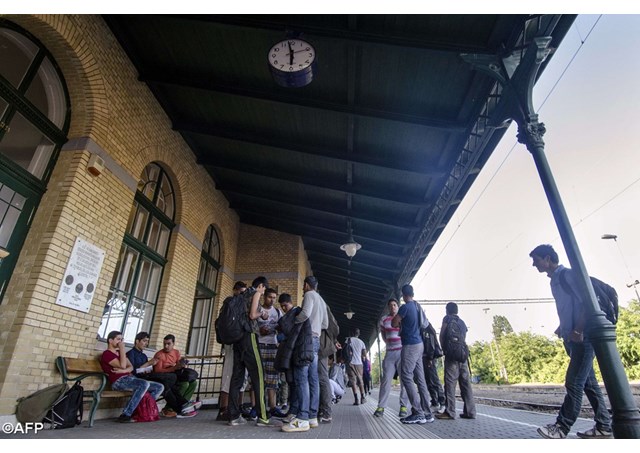
EU expresses concern over Hungary's migrant policy

(Vatican Radio) The European Union has asked for clarification after Hungary announced it would no longer accept asylum seekers who moved elsewhere in Europe before their requests were resolved.
Hungary's government said Tuesday it had informed 14 mostly EU countries — including Austria, Germany, Britain, France, Italy and Norway — that it will suspend taking back asylum seekers it registered because its refugee infrastructure is overloaded.
Listen to Stefan Bos' report:
The Interior Ministry claims Hungarian police have discovered more than 60,000 migrants crossing Hungary's border with Serbia this year alone, compared to 43,000 people in the whole of 2014.
However the 28-nation EU has already asked Hungary to clarify and remedy the measures. Under the block's rules, refugees can be sent back to the country where they first requested asylum.
High fence
Additionally, Hungary's centre-right government was expected to receive Wednesday a report about the cost, route and construction time table of a four meter (13-foot) high razor-wire fence it plans to build along its 175 kilometre (109 mile) border with Serbia.
The United Nations High Commissioner for Refugees, also active in Hungary, has expressed concern about the fence, explained its spokesperson Kitty McKinsey. "Any wall or fence would be a barrier to asylum and people have the right to seek asylum,” she said. “This is enshrined in the Hungarian Constitution, it’s a universal right, we want to make sure that Hungary keeps its borders open and the people are able to seek asylum and have their claims heard.”
Critics have compared it to the Iron Curtain that divided East and West Europe for decades. However even the Hungarian Helsinki Committee, an advocacy group, acknowledged that the system would collapse if all migrants remained in Hungary.
The country has become a point of entry into the EU for tens of thousands of migrants from Asia, the Middle East, including Ahmed from Morocco. “We walk 50 kilometers at least two times. After that we entered Macedonia, we walked about seven days. Than we entered Serbia. After Serbia, we are safe now in [EU member state] Hungary,” he said.
Safety concerns
While many migrants travel first through Greece, Serbia, Macedonia and other EU member or candidate countries, the bloc has expressed concerns about their safety in those places.
On Monday, Serbia and Hungary announced they had agreed that some 20 Hungarian police officers, armed with four mobile thermal cameras, would help patrol Serbia's southern border with Macedonia.
Yet it remained unclear whether they would be able to stem the flow of migrants and the effort on the hilly stretch was expected the only start next week.
| All the contents on this site are copyrighted ©. |


